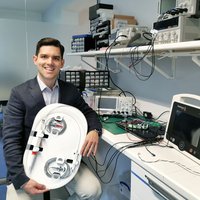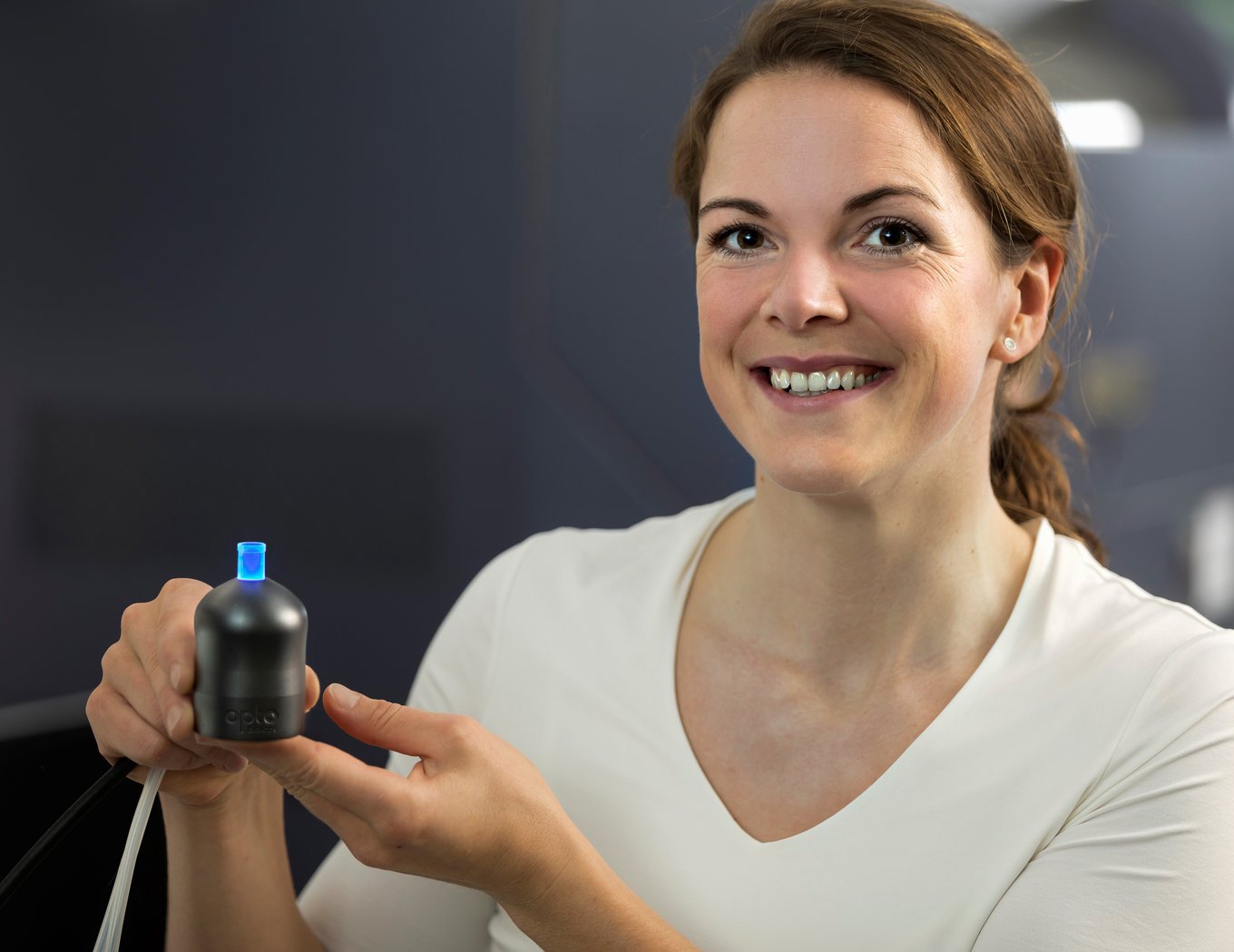Although still in its early stages, optogenetics is a promising new scientific field that seeks to control genetically modified cells through light. This approach has already had some surprising successes, such as controlling a series of cells with a simple smartphone to deliver insulin to diabetic mice. Optogenetics could also help in the treatment of other diseases such as schizophrenia, Parkinson's disease, and retinitis pigmentosa, which makes people lose their sight.
Kathrin Brenker became interested in this field while preparing her doctoral thesis at the University of Freiburg, Germany. Her work centered around epigenetics, a process of genetic regulation, and this is how she began to explore optogenetics by 'activating' cells with light. The young woman remembers, "I spent nights in front of the microscope. I wanted to improve and make this type of research more effective." This is how pxONE, the device she has patented for observing optogenic cells and testing their behaviour before inserting them into patients, came into being. This innovation has made her one of the winners of Innovators Under 35 Europe from MIT Technology Review.
The objective of pxONE is to analyze the modified cells through a flow cytometer. This scientific instrument distinguishes cells and classifies them according to their properties, but it does not have light systems to alter them, so until now, it was impossible to apply it to optogenetics. This has just changed because of pxONE, a device with interior illumination in which a tube containing the sample is inserted. This is placed in the cytometer, which scrutinizes the cells while a software regulates the light of the invention according to the objective of the researchers. "Not only does it make research more efficient, it also increases the opportunities for such experiments," summarizes Brenker.
The pxONE will serve to create light-based therapies and cells that help for the treatment of individualized cancer. Brenker's idea is that leukocytes or white blood cells (which fight infections and whose number is reduced during chemotherapy) are isolated and genetically altered to respond to light and then injected into a patient in order to assist the treatment. In fact, there have already been successful cases of treating melanomas in mice with optogenetic therapies. The young woman says, "I am enthusiastic about projects related to new anti-cancer therapies or those that alter the immune system to make it more beneficial to humans."
Five people are currently working at Opto Biolabs, the company co-founded by Brenker, to launch the first pxONE in December. She explains, "At the same time, we are developing more lighting devices which are also for optogenetics." In addition to illuminating the cells and seeing how they behave, Brenker wants to classify them by their properties and then inject them into patients as appropriate.
The Co-Founder and CEO of Leuko and member of the Innovators Under 35 Europe 2019 jury, Carlos Castro, points out that Brenker's work would have "multiple applications in the future, including personalized therapies against cancer." The expert concludes: "Opto Biolabs could be a catalyst in this process and accelerate the pace of new discoveries for a wide variety of new products and clinical use cases."
By José Manuel Blanco
Translation: Brian Bostwick




